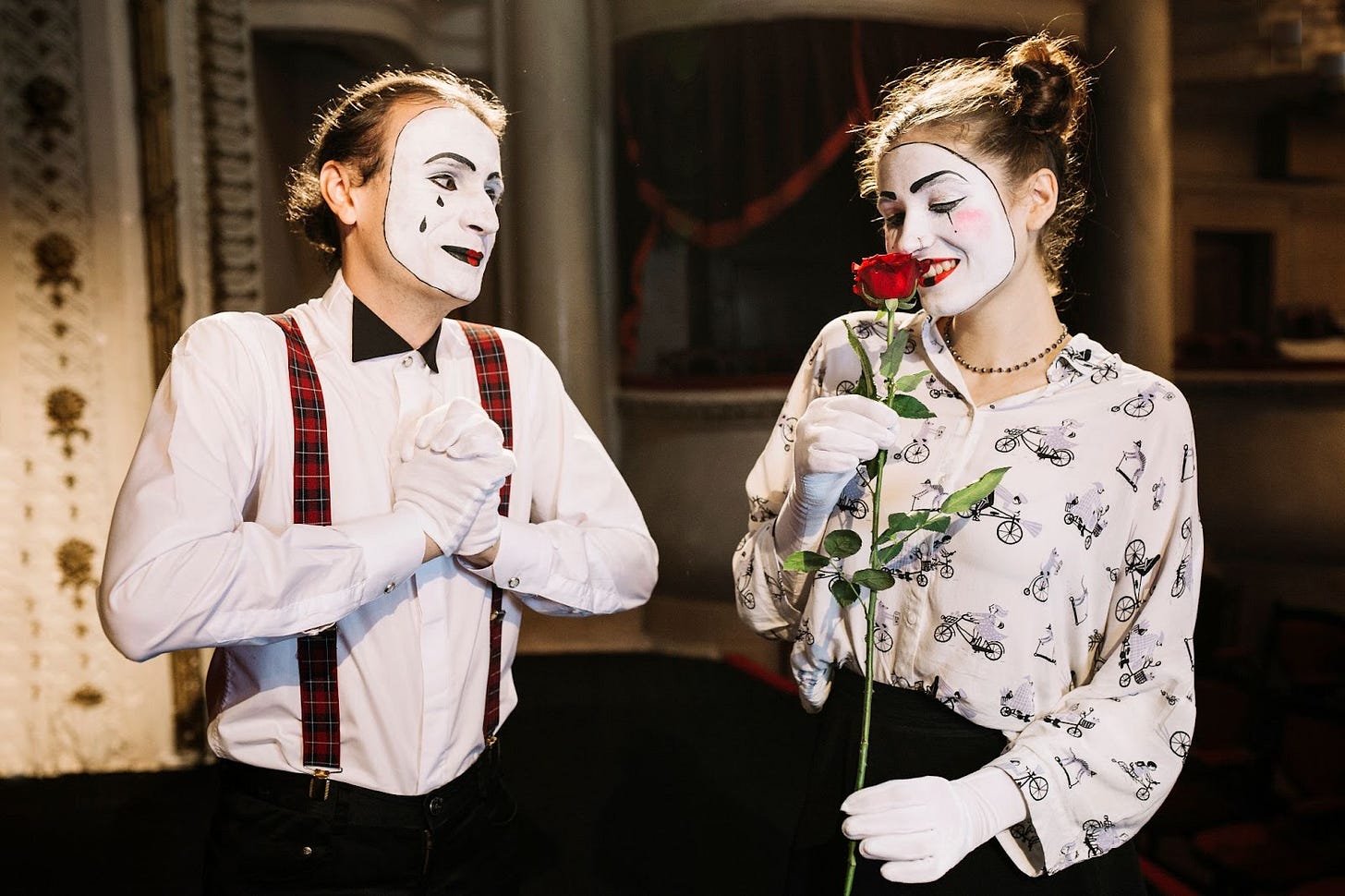On Relating & Connecting: Questioning the drive to “Be Yourself”
Authenticity Fatigue: When Keeping It Real Feels Hard
In a world that seems to be constantly pushing us to embrace our "true selves," the pressure to perform with authenticity can feel overwhelming. Whether it's sharing your deepest thoughts on social media or navigating vulnerability in relationships, the modern obsession with authenticity can sometimes leave us questioning:
Are we being real, or just trying to seem real?
If this resonates, you’re not alone—welcome to the paradox of authenticity.
Let’s start with social media, the ultimate stage for what sociologist Erving Goffman might call our “front stage selves.” In his dramaturgical theory, Goffman likened social interactions to theater, where individuals perform specific roles depending on the audience and context.
Platforms like Instagram and TikTok exemplify this concept, waving the banner of realness while simultaneously rewarding aesthetic perfection and curated vulnerability. Post a teary-eyed selfie with a heartfelt caption about burnout, and you’ll rack up likes for being brave - but usually only if it’s aesthetically pleasing. This “authenticity signaling” creates a cognitive dissonance: the performance of being raw and unfiltered can feel just as draining as maintaining a polished façade.
In close relationships, the "front stage" performance takes on another dimension. We often curate our actions and words to align with expectations, whether to avoid conflict or deepen connections. Authenticity becomes a balancing act between vulnerability and boundaries. Sure, we want to be open and honest, but where’s the line between sharing and oversharing? Excessive openness can sometimes backfire, overwhelming the listener or creating unintended strain. Ironically, the quest to “be real” can sometimes leave us feeling more disconnected than ever.
Historically, this obsession with authenticity is a modern phenomenon. Western ideals of rugged individualism and “finding your true self” amplify the pressure to stand out while also fitting in. Goffman’s theory reminds us that performing different selves in different contexts isn’t inherently inauthentic—it’s a natural part of social interaction. The problem arises when these performances are judged against an unattainable ideal of "true authenticity."
Here’s the silver lining: you don’t have to carry the weight of being real all the time. Authenticity doesn’t mean baring every part of your soul to everyone, nor does it mean living up to an idealized version of yourself. True authenticity is about choosing where and how to show up as your genuine self, in ways that feel safe and empowering. It’s about understanding that boundaries are not walls—they’re bridges that protect your energy and nurture deeper connections.
So, what’s the antidote to authenticity fatigue? Start by giving yourself permission to be selectively real. Not every thought or feeling needs to be shared with others, and that’s okay. Build trust incrementally in relationships, and remember that boundaries are not barriers - they’re scaffolding that support deeper connections. Most importantly, embrace the idea that authenticity isn’t a finish line; it’s a process of ongoing self-awareness and adaptation.
The next time someone tells you to “just be yourself,” take a breath. You’re already doing it, in your own messy, perfectly imperfect way. Authenticity doesn’t mean being unfiltered 24/7 - it means being human, and that’s more than enough. And in case you need a reminder: your journey toward authenticity is uniquely yours, and there’s beauty in every step of that process.
Food for Thought:
How do you navigate the tension between "front stage" performances and a sense of genuine self-expression in your relationships?
What does authenticity mean in today’s social media-driven world?
What’s one small step you could take this week to express your authentic self more comfortably?






I feel very performative at networking events. Dropping in genuinely can happen at any time, yet both parties have to feel into that space. Sometimes it happens, and sometimes it doesn't. I struggle with showing up "accurately" - meaning what I put out is what I had intended. I noticed the ones who do listen (beyond my words) receive what I meant. So now I'm practicing on listening better such that others can connect with their own authenticity. I'm not always good at it, yet it's a learning process.
Great discussion- I notice that it's hard for me to show up in groups when I sense that others have an expectation of what my energy should be - when I'm normally the chipper fun guy, it's hard to allow myself to be seen in lower states. I get a lot of "are you alright?" and I wish people just let me be how I'm being.
Authenticity to me is a moving target - it's not like there's just one me that I want everyone to see - it's that I am always changing, and I don't want to have to pretend there is just one me to present to the world.